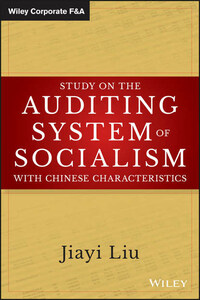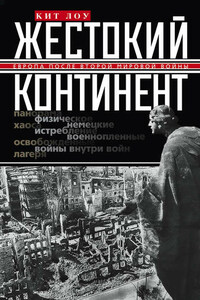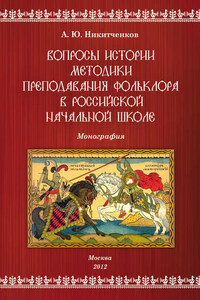Founded in 1807, John Wiley & Sons is the oldest independent publishing company in the United States. With offices in North America, Europe, Asia, and Australia, Wiley is globally committed to developing and marketing print and electronic products and services for our customers’ professional and personal knowledge and understanding.
The Wiley Corporate F&A series provides information, tools, and insights to corporate professionals responsible for issues affecting the profitability of their company, from accounting and finance to internal controls and performance management.
Cover image: © Vasko/iStockphoto
Cover design: Wiley
Copyright © 2017 by John Wiley & Sons, Inc. All rights reserved.
The Commercial Press, China Modern Economic Publishing House, 2016 Translated by WANG Guozhen and YANG Xiaoyu.
Published by John Wiley & Sons, Inc., Hoboken, New Jersey.
Published simultaneously in Canada.
No part of this publication may be reproduced, stored in a retrieval system, or transmitted in any form or by any means, electronic, mechanical, photocopying, recording, scanning, or otherwise, except as permitted under Section 107 or 108 of the 1976 United States Copyright Act, without either the prior written permission of the Publisher, or authorization through payment of the appropriate per-copy fee to the Copyright Clearance Center, Inc., 222 Rosewood Drive, Danvers, MA 01923, (978) 750-8400, fax (978) 646-8600, or on the Web at www.copyright.com. Requests to the Publisher for permission should be addressed to the Permissions Department, John Wiley & Sons, Inc., 111 River Street, Hoboken, NJ 07030, (201) 748-6011, fax (201) 748-6008, or online at www.wiley.com/go/permissions.
Limit of Liability/Disclaimer of Warranty: While the publisher and author have used their best efforts in preparing this book, they make no representations or warranties with respect to the accuracy or completeness of the contents of this book and specifically disclaim any implied warranties of merchantability or fitness for a particular purpose. No warranty may be created or extended by sales representatives or written sales materials. The advice and strategies contained herein may not be suitable for your situation. You should consult with a professional where appropriate. Neither the publisher nor author shall be liable for any loss of profit or any other commercial damages, including but not limited to special, incidental, consequential, or other damages.
For general information on our other products and services or for technical support, please contact our Customer Care Department within the United States at (800) 762-2974, outside the United States at (317) 572-3993 or fax (317) 572-4002.
Wiley publishes in a variety of print and electronic formats and by print-on-demand. Some material included with standard print versions of this book may not be included in e-books or in print-on-demand. If this book refers to media such as a CD or DVD that is not included in the version you purchased, you may download this material at http://booksupport.wiley.com. For more information about Wiley products, visit www.wiley.com.
Library of Congress Cataloging-in-Publication Data:
ISBN 9781119324706 (Hardcover)
ISBN 9781119328322 (ePDF)
ISBN 9781119328315 (ePub)
HOW DOES STATE AUDIT COME INTO BEING? What is its role in the national political system? What role does it play in national governance? How can the national auditing system better guarantee audit to play the fullest role? The answers to these questions determine the development course of state audit, and these are questions to which the audit organs of various countries must seek answers. The Lima Declaration of Guidelines on Auditing Precepts and the Beijing Declaration on Promotion of Good Governance by Supreme Audit Institutions, both released by the International Organization of Supreme Audit Institutions (INTOSAI), reflect a growing understanding of the importance of state audit and transformation from merely stressing independence to recognizing its essential role in achieving good national governance through supreme audit institutions. China has made its due contribution to this through its innovative practices in state audit. Under the leadership of the CPC, and with the guidance of the theory of socialism with Chinese characteristics, a state auditing system of socialism with Chinese characteristics has emerged reflecting these principles to guide state audit to become full of vigor and innovative vitality and plays an important role in promoting national governance and guaranteeing the healthy development of the national economy and society. Some of my international colleagues, who are also my friends, speak highly of the achievements China has made in this regard, including Mr. Josef Moser, former Secretary General of the International Organization of Supreme Audit Institutions (INTOSAI) and former President of Austrian Court of Audit, and Mr. Gene Dodaro, former Comptroller General of the United States. They have also urged me to sum up and tell them more about China’s state audit, including the theory, system, methods and experience. In accordance with the “mutually beneficial experience shared by all” concept upheld by the INTOSAI, my Chinese colleagues and I have tried to work on a book entitled








